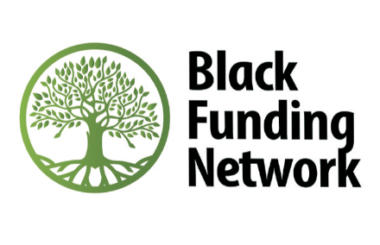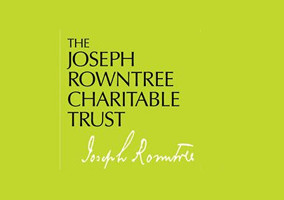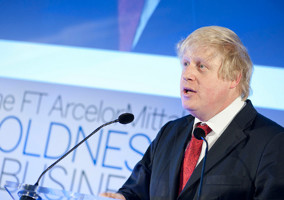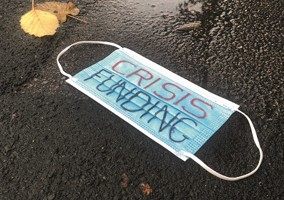Charities must go beyond performative acts and fund racial justice work to deliver a fairer future, the co-founder of the Black Funding Network has said.
Patricia Hamzahee was speaking at the Spring Summit, hosted by Civil Society Media, last week.
Hamzahee explained “recent events have brought societies inequalities into sharp focus” but “there is almost no research into the ethnicity divide in the UK for access to charitable and philanthropic funding,” hence the importance of data gathering in this area.
“I think that now is the time to be a true ally, and to fund racial and social justice,” she said, as “we know that the black community will suffer most from the tsunami of unemployment and the consequential impacts on poverty, health crime and the rest is coming post-Covid-19.”
Hamzahee said: “There is a greater focus from the community on self-sufficiency, where the black community is seen not only as recipients of charity but are galvanized as sources of funding.”
Nonetheless, she believes “politicians are encroaching dangerously into the third sector” and preventing charities and social enterprises from fulfilling promises made to the most disadvantaged.
Areas of opportunity for systemic change
Hamzahee said charities should focus on racial justice, in order to help the most disadvantaged.
She said there are several key areas of opportunity for “systemic change”.
One is understanding the difference between the equity of outcomes versus equality of opportunity.
Second, “there must be much more co-creation with delivery partners that represent and are trusted by the communities they serve.”
She explained how a “modicum of trust” is “important in terms of long-term relationships, in terms of really embedding good practice in the work that we do”.
She also urged funders to think about “tangible actions“ the could take.
This might involve resourcing racial justice or moving funding from a place of excess towards a marginalised community, that “would never get funding from mainstream funders and probably are not organisations that you would have come across, even though they are doing important work at the grassroots level with communities”.
Simple measures
Hamzahee added that there are “simple measures such as more unrestricted giving” and supporting impact measurements capacity in those smaller organisations that do not have the resources “to go through the hoops that are too often asked of them”.
Also, funders can “give feedback to those rejected” so they are able to “understand the complex ecosystem”.
“I know it's complicated to give feedback, but I think this is where innovation should be applied,” she said.
Finally, “we must confront omission”, as “opportunity and omission are both sides of the diversity coin”.
“If you don't have true, not tokenistic representation, within your organisations specifically on the board and your leadership team, you cannot hope to overcome the imbalance of power,” she said.
Funders urged to address structural racism with commitment in long-term strategies
Indeed, a recent report by The Ubele Initiative states that tackling systemic racism should feature in funders long-term strategies.
The Booska Paper exposes structural racism in the third sector and explores the impact of the pandemic on funding attitudes in the UK.
Many of the groups who were interviewed for the paper raised serious concerns about the sustainability funding which has been triggered by the events of 2020, and of the relationships that were established during the extraordinary events of last year.
“Many spoke of the cliff-edge that will be faced when emergency funding ceases,” it states.
Interviewees questioned whether this was performative funding, or whether it will be maintained longer-term.
“Serious doubts exist in the sector as to whether funders come to this work with a long-term commitment to addressing racial inequalities. Because of their personal knowledge of and experience with how institutional racism plays out in this country, many interviewees feel that last year is likely to represent a high tide that simply will not last. It remains to be seen whether funders will disprove this hypothesis by sustaining and improving on the important progress that was made last year,” the paper states.
It highlights also the crisis of confidence in the sector accompanied by the feeling of not deserving of funding.
A culture of competition, diversity and inclusion efforts being confused with demonstrating anti-racism, and lack of transparency, need to be addressed by funders and policymakers, the paper states.
“Almost all the people we interviewed cited lack of confidence as one of the most significant barriers to groups accessing funding. So when funders say they are not receiving enough applications from the sector, it needs to be understood that eroded confidence is as a key factor that needs to be addressed. Blaming groups as the problem doesn't help, it actually makes it worse,” the paper reads.
It adds that while some funders have been more communicative about the decision-making processes, limited data is available about funding decisions at the outcome level, “which is crucial to detecting additional barriers”.
Yvonne Field, founder and chief executive of The Ubele Initiative said: “Our national voice, articulated and captured by ourselves concerning our long-term funding needs has been missing from the Covid-19 recovery planning period.
“This position paper will not be an easy read for some, but we know facilitating transformational change is not really for the fainthearted! We hope that funders will dig deep, commit to the Calls to Action and collaborate with our sector to ensure that more racially just funding practices including designs and decision-making become mainstream practice over the next few years.”
The Booska Paper: Calls to Action have been signed by #CharitySoWhite, Runnymede Trust, Kanlungan Filipino Consortium, Imkaan, Coalition of Race Equality, Race on the Agenda amongst others.
#CharitySoWhite said: “The Booska Paper sets out a clear vision for the funding sector that prioritises racial equity and justice. We echo their calls to action, and urge funders to adopt them in line with their commitments to anti-racism over the past year.
“We have a vision for a charity sector that takes the lead in rooting out racism. We have a long way to go; we have just scratched the surface. We look forward to seeing the sector embrace these calls to action, centre and value racialised communities and create cultures where staff of colour are safe and supported.”
Related articles
Black funding matters: An innovative crowdfunder looks to support Black-led charities
Co-founder of the Black Funding Network, Yvette Griffith, explains the inspiration behind a groundbreaking crowdfunding initiative.












